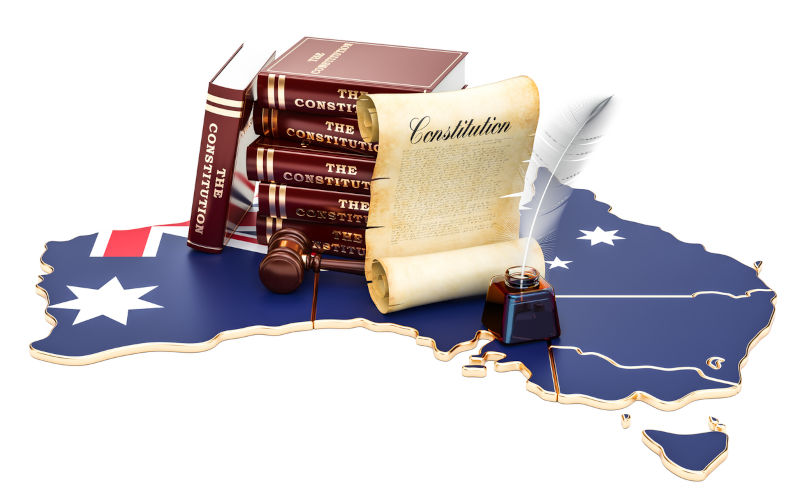Despite their occupation of our continent for over 60,000 years, our Aboriginal and Torres Strait Islander peoples are not recognised in the Constitution, the document on which our nation is founded.
It is high time to repair our national record and complete our national story by providing that recognition. Enshrinement in the Constitution of an Aboriginal and Torres Strait Islander Voice is the form of recognition they have requested. That is the proposal on which we will soon be asked to vote. We owe it to our country to vote Yes. It is our chance to reconcile with our past, to strengthen our national unity and to enable closure of the generational societal gaps which Aboriginal and Torres Strait Islander peoples endure.
The great virtue of the constitutional amendment is its simplicity. It proposes three things: that there be a body called the Aboriginal and Torres Strait Islander Voice, that the Voice have power to make representations to the federal parliament and the federal executive government on “matters relating to Aboriginal and Torres Strait Islander peoples” and that the parliament have power to legislate with respect to “matters relating to the Voice, including its composition, functions, powers and procedures”.
The Voice will complement, not replace, our existing system of government. It will be an independent body which speaks to the parliament and the executive government without replacing or impeding their actions in any way. The naysayers are wrong to assert it will impede the ordinary functioning of our democratic system.
A criticism which some have levelled at the proposal, and which is repeated in the No case published 18 July, is that it opens the way to challenges in the courts concerning the making of representations by the Voice and will thereby clog and delay government administration. That criticism is unfounded. The parliament and the executive will be under no obligation to accept
representations made to them. Nor will the parliament or the executive be under any obligation to consult the Voice on any matter. The amendment provides only for the Voice to make representations. Because we live in a country which respects the rule of law, one cannot rule out the possibility of someone bringing an action in court to challenge action taken by the parliament or the executive based on an alleged deficiency either to give effect to a representation made by the Voice or to consult the Voice. However, so far as representations to the parliament are concerned, it is inevitable that any such action will fail. The courts will rule that any challenge based on a failure to obtain or give effect to a representation is non justiciable, that is to say, they will find that the matter is simply not amenable to judicial review. Their attitude will be that the Voice, like anyone else, may make a representation to the parliament on any matter but that the extent to which the parliament takes notice of the representation is a matter for it alone. The same will apply to representations on policy matters made to the executive.
Might there be a different outcome if a challenge were brought to the exercise of a power conferred by statute on a Minister or agency? Such exercises of power are ordinarily open to be judicially reviewed. However, any challenge framed in terms of failure of the decision maker to take account of a representation made by the Voice will be highly unlikely to succeed. The law is clear that decision makers will only err if they fail to take into account considerations which the particular statute requires them to take into account. It is very difficult to think of a circumstance where a representation made by the Voice will fall into this category. In any event, it is likely that the parliament will use the power given to it under the proposed constitutional amendment to legislate about the legal effect of representations made by the Voice. The thrust of the legislation might be to the effect that, in the making of administrative decisions, decision makers are not legally obliged to consider representations made by the Voice.
Another criticism made of the constitutional amendment is that the simplicity of its language leaves open the range of matters on which the Voice may make representations. But what is wrong with that? Is it likely that the Voice will waste the capital the Australian people have given it by making a representation on a matter which is not of special relevance to Aboriginal and Torres Strait Islander peoples? And if it does make a representation on such a matter, will not the representation be adequately handled through the simple mechanism of the weight which the parliament or the executive gives to it?
The Voice will provide a practical means for enabling our indigenous peoples to formulate and put forward their own solutions to problems affecting them. Entrenching the Voice in the Constitution carries with it important symbolism in demonstrating that the nation is at one in wishing to correct our national record so that we can move forward together.
Denis graduated from Melbourne University in 1975 with BA and LLB degrees. He was later awarded an LLM degree from the ANU for his thesis dealing with the Governor-General’s powers to dissolve the Houses of Parliament. Before joining Minter Ellison in 1989, Denis was a Senior Executive lawyer in the Commonwealth Attorney-General’s Department. His practice as a partner in Minter Ellison was mainly in the area of administrative law, covering both judicial and tribunal review. He drafted Fiji’s 1997 Constitution. Denis was the head of the Refugee and Migration Review Tribunals from 2007 to 2012.

